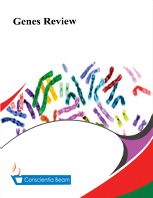Anti-Proliferative Effect of Asiatic Acid on Hep-G2 Cell Line
DOI:
https://doi.org/10.18488/journal.103/2015.1.2/103.2.37.44Abstract
Asiatic acid (AA) is a pentacyclic triterpene in the leaf of the plant Centella asiatica (CA) is known to inhibit proliferation and induce apoptosis in several tumor cell lines. Plants are playing a significant role in human life as food, shelter and stability of the ecosystem. Most importantly to humans, it is currently estimated that 50% of all drugs in clinical use has been derived from natural products and at least 25% of all prescription drugs contain ingredients extracted from plants. In the present study, the antiproliferative activity of various concentrations (10, 20, 30, 40, 50, 60 µg/ml) of AA, a active principle of CA, on human Hep G2 liver cell lines (untreated and treated) was determined by the MTT assay based on the detection of mitochondrial dehydrogenase activity in living cells. The study reveals that the AA effectively inhibits the growth of cancer cells in concentration dependent manner and at a high of 85 % at the concentration of 50µg/ml.

